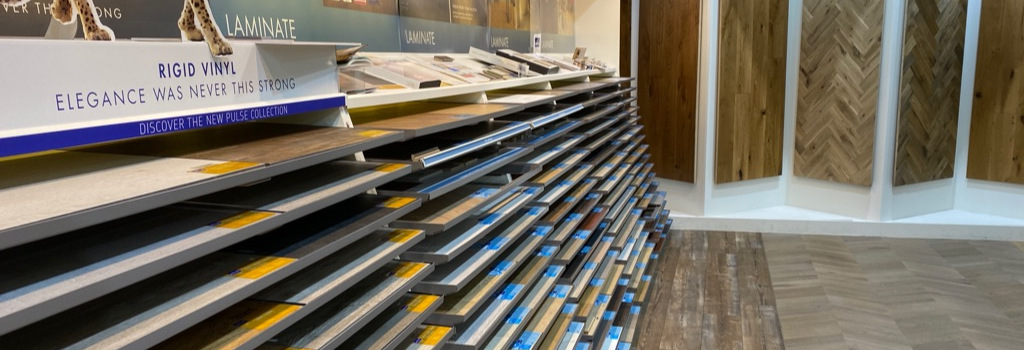Flooring Installation Insurance: Fitting Service & Workmanship Coverage
Professional flooring installation requires specialized insurance protection. From hardwood to carpet, vinyl to tile, flooring contractors face unique risks that standard business insurance may not adequately cover.
Why Flooring Installers Need Specialized Insurance
Flooring installation is a skilled trade that involves working in customers' homes and commercial properties, handling expensive materials, and using specialized tools and equipment. The nature of this work creates specific liability exposures and business risks that require tailored insurance coverage.
Common Risks in Flooring Installation
- Property Damage: Accidental damage to walls, fixtures, or existing flooring during installation
- Workmanship Issues: Claims arising from faulty installation or material defects
- Water Damage: Flooding or moisture issues affecting subfloors or surrounding areas
- Tool and Equipment Loss: Theft or damage to expensive installation tools and machinery
- Personal Injury: Customer or worker injuries on job sites
- Material Liability: Issues with supplied flooring materials or adhesives
Essential Coverage Components
Public Liability Insurance
Protects against claims for property damage or personal injury caused during flooring installation work. This covers accidents like damage to customer property, injuries from tools or materials, and third-party claims arising from your installation activities.
Professional Indemnity Insurance
Essential coverage for workmanship-related claims, including faulty installation, incorrect material recommendations, or failure to meet project specifications. This protection is crucial when customers claim financial losses due to your professional services.
Tools and Equipment Cover
Specialized protection for your valuable installation equipment, including floor sanders, nail guns, moisture meters, and cutting tools. Coverage typically includes theft, accidental damage, and breakdown of essential equipment.
Employers' Liability Insurance
Legally required if you employ staff, this covers claims from employees injured while working on flooring installation projects. Essential protection for businesses with apprentices, subcontractors, or full-time installation teams.
Commercial Vehicle Insurance
Specialized coverage for vehicles used to transport flooring materials, tools, and equipment to job sites. Standard personal vehicle insurance typically excludes business use, making commercial coverage essential.
Specialized Flooring Installation Risks
Subfloor and Structural Issues
Flooring installers often discover hidden problems like subfloor damage, moisture issues, or structural defects. Insurance should cover the costs of addressing these unexpected complications and any resulting delays or additional work required.
Material and Adhesive Liability
Claims can arise from defective flooring materials, inappropriate adhesive selection, or reactions between different materials. Coverage should include both the cost of replacement materials and any consequential damage.
Installation Warranty Claims
Many flooring installers offer workmanship warranties. Insurance should cover the costs of returning to rectify installation issues, including labor, materials, and any associated damage from remedial work.
Dust and Debris Management
Flooring installation often generates significant dust and debris. Coverage should include claims related to inadequate protection of customer property or health issues arising from dust exposure.
Coverage for Different Flooring Types
Hardwood Installation
Specific risks include moisture damage, expansion issues, and damage from sanding equipment. Coverage should address the high value of hardwood materials and specialized installation techniques.
Carpet Installation
Unique exposures include stretching-related damage, seaming issues, and adhesive problems. Protection needed for carpet-specific tools and potential allergic reactions to materials.
Tile and Stone Installation
Heavy materials create lifting injury risks and potential property damage. Coverage should include protection against cracking, water damage from grouting, and specialized cutting equipment.
Vinyl and Laminate Installation
Fast-growing sector with specific risks around moisture barriers, expansion gaps, and chemical adhesives. Coverage should address both residential and commercial installation requirements.
Business Interruption Protection
Flooring installation businesses depend on continuous workflow and seasonal demand patterns. Business interruption insurance covers lost income when you cannot work due to:
- Equipment breakdown or theft
- Injury preventing you from working
- Supplier issues affecting material availability
- Property damage to your business premises
- Legal disputes preventing project completion
Legal Expenses and Contract Disputes
Flooring installation contracts can lead to disputes over workmanship standards, completion timelines, or material specifications. Legal expenses insurance covers:
- Contract dispute resolution
- Employment law issues
- Health and safety prosecutions
- Debt recovery actions
- Professional licensing defense
Choosing the Right Insurance Provider
Industry Experience
Select insurers with specific experience in flooring installation risks. They understand the unique challenges of your trade and can provide appropriate coverage levels and claims handling expertise.
Coverage Flexibility
Look for policies that can adapt to your business size, from sole traders to larger installation companies. Coverage should scale with your business growth and changing risk profile.
Claims Support
Choose insurers offering 24/7 claims reporting and dedicated trade claims handlers. Quick response times are crucial when installation projects are delayed by covered incidents.
Risk Management Resources
The best insurers provide safety training, risk assessment tools, and industry-specific guidance to help prevent claims and improve your business operations.
Cost Factors and Premium Considerations
Flooring installation insurance premiums depend on several factors:
- Business Size: Annual turnover and number of employees
- Installation Types: Residential vs. commercial work complexity
- Geographic Coverage: Areas where you operate
- Claims History: Previous insurance claims and safety record
- Coverage Limits: Level of protection required
- Risk Management: Safety procedures and training programs
Getting Started with Flooring Installation Insurance
Protecting your flooring installation business starts with understanding your specific risks and coverage needs. Consider factors like your typical project size, materials you work with, and whether you employ staff or use subcontractors.
A comprehensive insurance review should evaluate your current coverage gaps and ensure you have adequate protection for both your business assets and professional liabilities. Regular policy reviews help maintain appropriate coverage as your business grows and evolves.


 0330 127 2333
0330 127 2333
